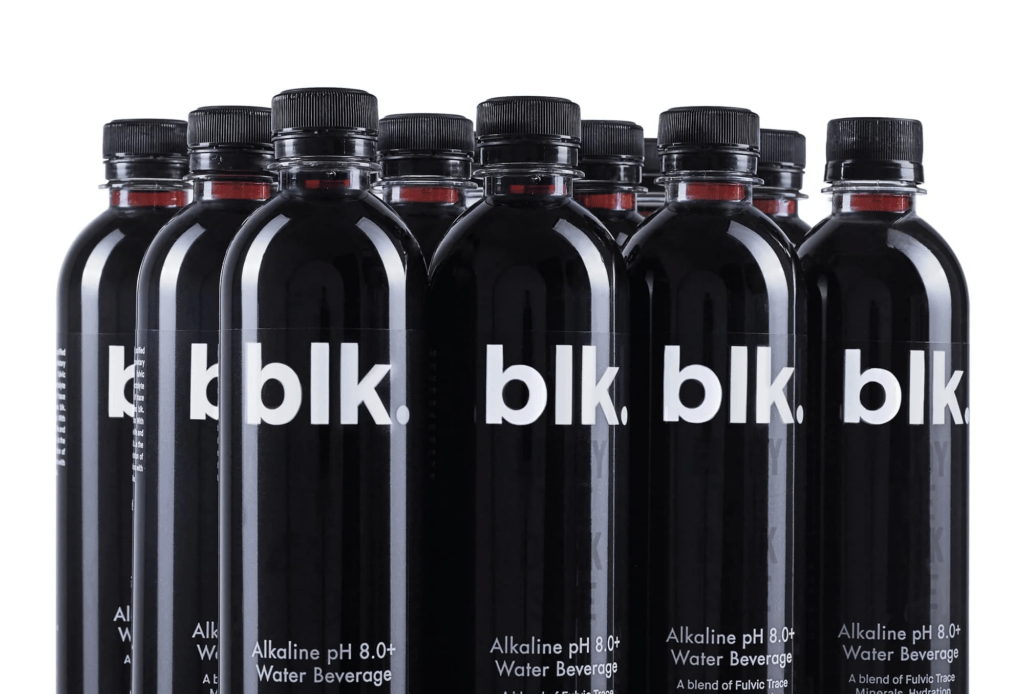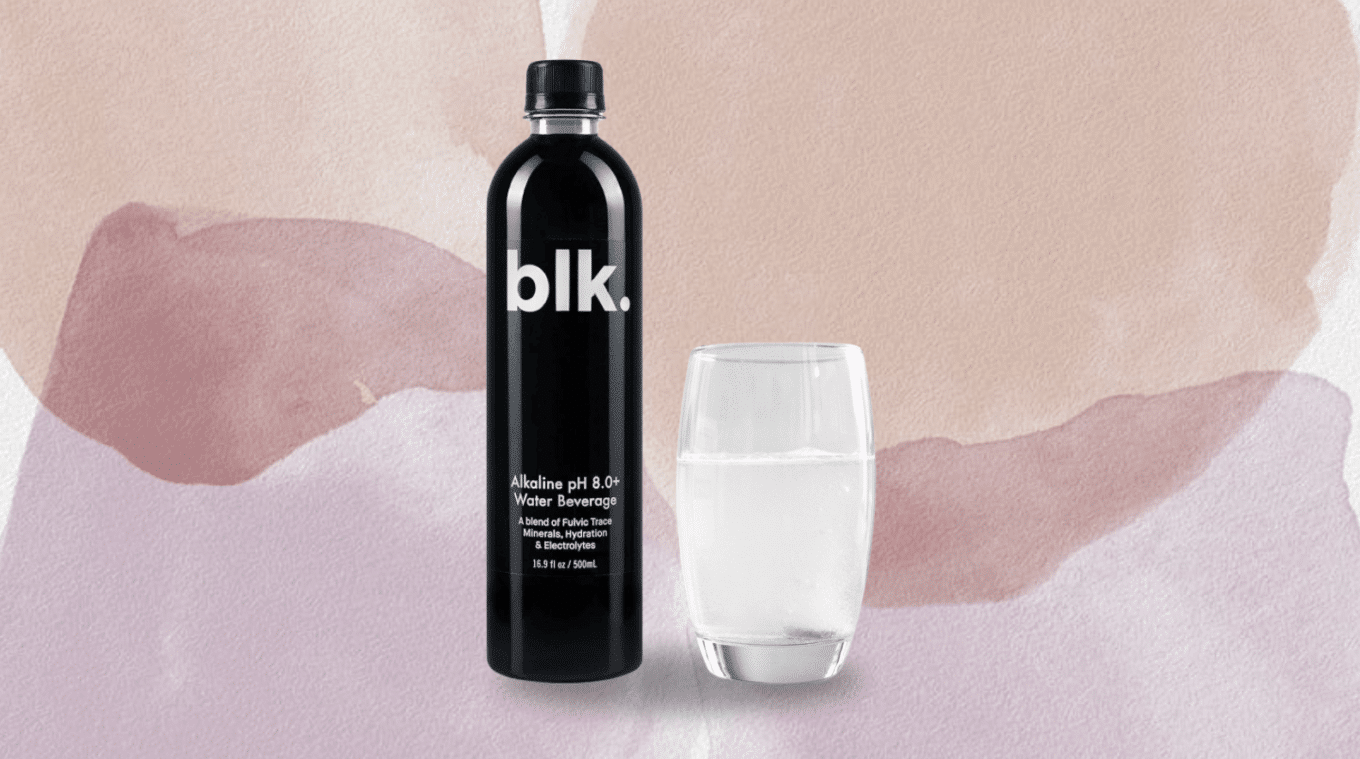Are you confused about choosing black alkaline or regular water for optimal hydration?
You’re not alone. With so many options available, deciding which type of water is best for your health and well-being can be overwhelming.
While regular water is a tried-and-true choice, black alkaline water has gained popularity recently due to its unique properties and potential benefits.
However, it’s crucial to understand the differences between the two and make an informed decision based on your needs and preferences.
In this blog post, we’ll explore the key factors to consider when choosing between black alkaline water and regular water for hydration, helping you make the best choice for your body and lifestyle.
Understanding Blk Water and Regular Water
While blk water and regular water serve the basic purpose of keeping you hydrated, they have distinct properties that set them apart.
Blk water, also known as black alkaline water, stands out due to its alkalinity and added minerals, while regular water has a neutral pH and a simpler composition.
Blk Water

Blk water gets its dark color from the presence of fulvic acid. This type of water has a higher pH level, usually between 8 and 9, making it alkaline compared to regular water. Blk water also boasts an enhanced mineral content, including calcium, magnesium, and potassium, which are added during production or through electrolysis.
Regular Water

On the other hand, regular water is the standard drinking water most people are familiar with. It has a neutral pH of around 7, meaning it is neither acidic nor alkaline. While regular water also contains minerals, the variety, and concentration are typically lower than in blk water.
Comparative Analysis of pH Levels and Mineral Enhancements
The difference in pH levels between blk water and regular water may affect your body’s digestion and overall health.
Some studies suggest that the alkalinity of blk water could help neutralize excess acidity, potentially supporting better digestive function.
Additionally, the increased mineral content in blk water may offer benefits such as improved bone health, more effective hydration, and enhanced metabolic functions.
However, it is important to note that research on the health implications of blk water compared to regular water is ongoing, and there are debates regarding the potential risks and benefits of each.
As with any health-related decision, it is advisable to consult a healthcare professional to determine which type of water is most suitable for your needs.
Health Benefits and Risks
Benefits of Blk Water
- Enhanced Hydration: The higher mineral content in blk water can contribute to better hydration than regular water. These minerals help your body absorb and retain water more effectively, potentially leading to improved cellular function and increased energy levels.
- Nutrient Supply: Blk water contains essential minerals like calcium, magnesium, and potassium, which play crucial roles in supporting overall health. Calcium is vital for strong bones and teeth, magnesium aids muscle and nerve function, and potassium helps regulate blood pressure and fluid balance.
- Skin Health: The mineral and antioxidant properties of blk water may contribute to healthier skin by keeping it hydrated and reducing the effects of aging.
- Digestion: The alkaline nature of blk water can help balance the body’s pH levels, potentially reducing the occurrence of acid reflux and promoting better digestive health.
- Cardiovascular Health: Improved hydration and mineral balance from drinking blk water may support cardiovascular health by maintaining proper blood flow and reducing the risk of heart disease.
Benefits of Regular Water
- Essential Hydration: Regular water is necessary for maintaining vital bodily functions, such as regulating body temperature, transporting nutrients, and removing waste products. Staying hydrated with regular water helps keep your body functioning optimally.
- Safety and Accessibility: Regular water has a lower risk of negative side effects than bottled water, making it a safe choice for most people. It is readily available from various sources, including tap, bottled, and filtered water systems.
- Cost-Effectiveness and Availability: Regular water is more accessible and often less expensive than blk water. This makes it easier to maintain consistent daily hydration without the added cost of specialty water products.
Risks and Considerations
- Altered Body pH: Long-term consumption of blk water may alter the body’s natural pH balance. Drinking excessive amounts of alkaline water can lead to metabolic alkalosis, which can cause symptoms like confusion and muscle twitching.
- Over-Mineralization: While the added minerals in blk water can be beneficial, consuming too much can lead to hypermineralization. This can negatively affect bodily functions, especially in individuals with pre-existing kidney issues.
- Lack of Additional Benefits: While regular water provides essential hydration, it may not offer the additional health benefits associated with blk water, such as increased mineral intake and potential pH balance.
- Chemical Contaminants: Regular tap water may contain chemical contaminants like chlorine or fluoride, depending on the source and treatment process. Using water filters or opting for purified bottled water can help reduce the presence of these substances.
Cost Comparison Between Blk Water and Regular Water
When deciding between blk water and regular water, it’s important to consider the cost and accessibility of each option to determine which one best fits your budget and lifestyle.
- Price Points: Blk water is generally more expensive than tap or bottled water. A 500ml bottle of blk water can cost anywhere from $2 to $5, while tap water is essentially free, and a similar-sized bottle of regular water typically costs less than $1.
- Cost Justification: The higher price of blk water can be attributed to several factors, including the production process, which involves adding minerals and fulvic acid to the water, as well as the specialized packaging that helps maintain its unique properties.
- Budget Considerations: If you’re interested in incorporating blk water into your diet, it’s important to consider your budget. One way to manage costs is to use blk water selectively for specific health benefits, such as during intense physical activity or when seeking an antioxidant boost while relying on regular water for general hydration needs.
Availability and Accessibility
- Market Availability: While regular water is widely available in virtually every store and vending machine, blk water may be more limited in distribution. It can often be found in health food stores, specialty grocers, and some larger supermarket chains, as well as through online retailers.
- Geographic Variations: The availability of blk water may vary depending on your location. It tends to be more readily available in urban areas and regions with a higher interest in health and wellness products. At the same time, it may be harder to find in rural or less populated areas.
- Access Considerations: Limited store stocks and higher prices can be barriers to accessing blk water regularly. To overcome these challenges, you can look for sales or discounts, buy in bulk when possible, or prioritize purchasing blk water from more affordable sources, such as online retailers with competitive pricing and subscription options.
Recommendations for Integration into a Healthy Lifestyle

1. Balanced Use: To benefit from blk water while staying within your budget, consider using it as a supplement rather than replacing regular water. You can alternate between the two throughout the day or reserve blk water when you need an extra hydration boost or antioxidants.
2. Health Goals: When integrating blk water into your diet, consider your health goals. If you’re looking to improve your skin health or support your digestive system, you may want to prioritize blk water intake. If your main focus is staying hydrated during workouts, you can use blk water strategically before, during, or after exercise.
3. Dietary Integration: There are many ways to incorporate blk water into your daily routines. Consider starting your day with a glass of blk water to kickstart your hydration, using it as a base for smoothies or other beverages, or sipping it throughout the day. You can also use blk water in cooking, such as for making soups or steaming vegetables, to infuse your meals with its unique mineral content.
4. Mindful Consumption: While blk water may have potential health benefits, it’s crucial to consume it mindfully. Pay attention to your body’s signals and how you feel after drinking blk water. If you experience any negative side effects or discomfort, such as digestive issues or excessive thirst, reduce your intake or consult a healthcare professional to determine if blk water is right for you.
5. Combine with a Balanced Diet: While blk water may offer some health benefits, it’s important to remember that it should be part of a well-rounded, balanced diet. To support your overall health and well-being, consume various nutrient-dense foods, such as fruits, vegetables, whole grains, lean proteins, and healthy fats. Blk water can complement a healthy lifestyle but should not be relied upon as a sole source of nutrition.
Final Thoughts
Choosing between blk water and regular water for hydration ultimately depends on your health goals, budget, and accessibility.
While blk water offers potential benefits like enhanced hydration, increased mineral intake, and pH balance, it comes at a higher cost and may be less widely available.
Regular water remains reliable and affordable to meet your basic hydration needs. Consider incorporating blk water strategically into your lifestyle, such as during increased physical activity or when seeking targeted health benefits.
However, it is crucial to listen to your body and consult a healthcare professional to determine the best approach for your unique needs.
By understanding the key differences between blk water and regular water, you can make an informed decision that supports your overall health and well-being.




